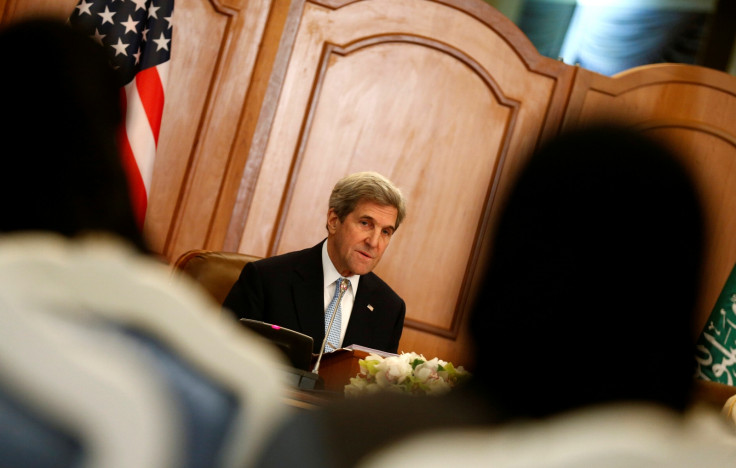Where to watch John Kerry's final speech on the Israeli-Palestinian peace process
Secretary of state to present Obama administration's vision for how long-enduring conflict can be resolved.

US Secretary of State John Kerry will lay out the Obama administration's vision for continuing efforts to broker peace between Israel and Palestine on Wednesday (28 December) in a livestreamed speech.
Kerry's message follows a series of complex diplomatic manoeuvers over a UN Security Council resolution to halt Israeli settlements last week. Israeli Prime Minister Benjamin Netanyahu was angered that the US did not veto the resolution that called on Israel to "immediately and completely cease" all settlement building.
Kerry's speech will be livestreamed at State.gov at 11am EST (4pm GMT). He thinks "it is his duty in his remaining weeks and days as secretary of state to lay out what he believes is a way towards a two-state solution," said State Department spokesman Mark Toner during a press briefing on the event on Tuesday (27 December).
Toner said Kerry insists "it's always important to keep the process moving forward," according to The Times of Israel and that the US hasn't "given up on this and we don't think the Israelis and Palestinians should either." The speech will include a comprehensive plan to resolve the conflict, which has eluded multiple Presidents and the Israelis and Palestinians for decades.
Between 2013 and 2014 Kerry attempted over a nine month period to revive peace talks between Israel and Palestine. He met with Palestinian President Mahmoud Abbas 34 times and Israel's Netanyahu twice as many times, but the efforts failed.
During those talks Abbas said that "in a final resolution, we would not see the presence of a single Israeli – civilian or soldier – on our lands."
New Zealand's ambassador to Israel has now been banned from entering the country over its vote on the UN resolution. And Israel has also threatened sanctions against the New Zealand.
According to Israeli media reports about last week's UN resolution, Netanyahu told New Zealand, which sits on the Security Council, that if they "continue to promote this resolution, from our point of view it will be a declaration of war."
© Copyright IBTimes 2025. All rights reserved.





















